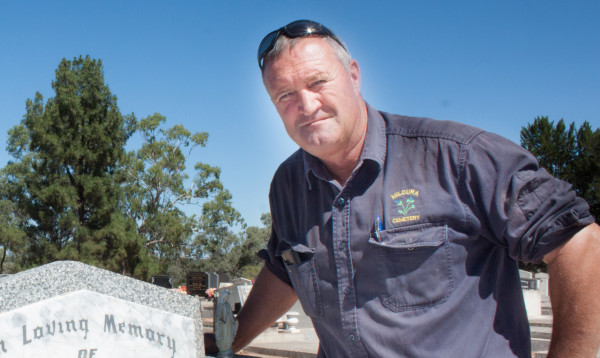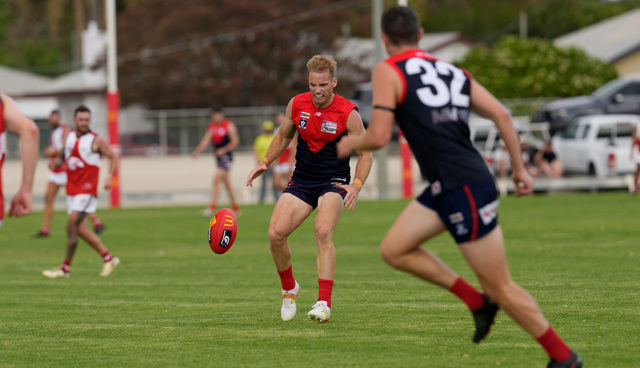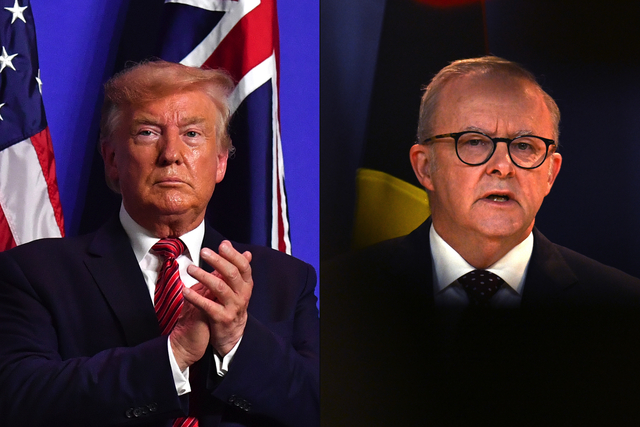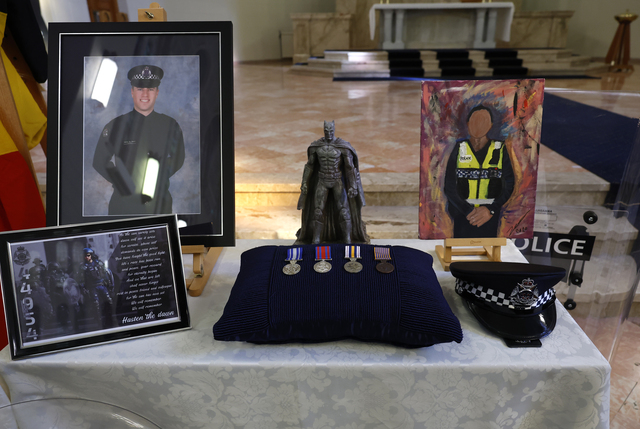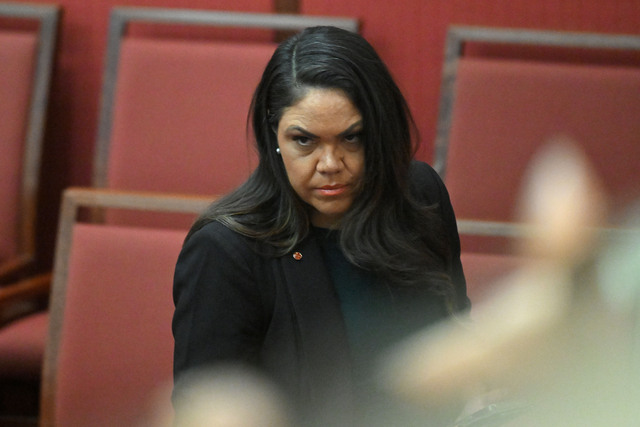THE man at the centre of the Mildura Cemetery Trust scandal says he took his duties and responsibilities in his employment “most seriously” and was always trying to do the best for grieving families.
Council employee Darren Bock was this week implicated in alleged illegal exhumations, benefiting personally through the installation of about 175 memorial seats and receiving payments from funeral directors for lifting grave ledgers.
While Mr Bock exercised his legal right to decline to answer questions against self-incrimination about the exhumations, he told investigators he believed he was doing a “good job” before his resignation in August last year.
The investigation by the Broad-based Anti-corruption Commission began in the months before Mr Bock left the trust as cemetery team leader, a position he had held since 2005.
The findings of the investigation were tabled in the Victorian Parliament this week by the Victorian Ombudsman.
Mr Bock told investigators that while no one was telling him that he was doing something wrong, he believed he was doing a good job.
“The feedback that I got probably on my files and that may attest to that … of the letters,” Mr Bock said.
“I always basically conduct … myself that I was trying to do the best for the families,” he said.
“In saying that I always try to be honest and open with the managers or any dealings that I had over the 25 years.”
Mr Bock said he also believed his work with funeral directors was up to scratch.
“My belief that my work with the funeral directors and stuff like that was the same thing,” he said.
“I think they respected how I ran the cemeteries and what I did to try and help everyone out and make sure things went as smoothly as what I possibly could make things do.”
He said he took his duties and responsibilities in his employment “most seriously”, and maintained the cemetery grounds as best he could within the limits of the training, resources and management support available.
Mr Bock denied that he approached mourners to buy memorial seats from him.
He said he did not “initiate any proactive, unsolicited approach to, or contact with, any member of the public in the cemetery grounds to promote, sell or propose to sell any memorial seats to them”.
Instead, he said he was often approached by members of the public inquiring about the seats and how they might organise one to be installed.
He said cemetery trust members visited the cemeteries on many occasions over the years and that none “made any adverse comments to him about the seats”.

Mr Bock told investigators that in about 2000, he put the idea to his former manager after being approached by the family of a person buried in one of the trust’s cemeteries.
He said the manager told him to proceed.
“So at that point in time, once we had the conversation, I was told to go ahead – he had no issues with that and the family would purchase the seats,” he said.
“So all the costing around the seat would be on the families and I would just put them in the area that they wanted.”
In his submissions in reply to a draft of the report, Mr Bock said his manager and the trust were aware at all relevant times of the memorial seats and his installation of them.
He also told investigators the practice of receiving cash payments for lifting ledgers started between 1996 and 1998, when he was a gravedigger.
He said that the practice continued until 2015 or 2016 and that he would have been paid to lift a grave ledger “between maybe three and six” times a year.
- Blurred lines prolonged cemetery trust problems, says report
- We understand distress over burials, say Aboriginal leaders
Mr Bock said he would receive cash cheques for $150 for each such service, which would be divided among staff carrying out the task.
“(I)t was understood by the staff that anyone who was involved in it would receive payment – equal share of whatever the payment was,” he said.
“All the staff knew … that if we were doing a ledger they would be entitled to $50.”
Mr Bock denied that cemetery staff had ever told him that they were not comfortable about accepting the payments, but that he stopped the practice of lifting ledgers out of concern for the health and safety of one of his subordinates, who had been struggling with lifting the heavy stone slabs.
He confirmed that the arrangement was between certain funeral directors and the trust’s cemetery staff, and that to his knowledge, the trust was not aware of the arrangements.
Mr Bock agreed that in hindsight, the practice presented financial risks and impacts for the trust.
Witness statements in the Ombudsman’s report
“I couldn’t tell you her exact words, but she (former Mildura Cemetery Trust chair) was concerned that Darren was selling chairs to people during cemetery time on the cemetery grounds and pocketing the money.”
– Mr Bock’s manager
“I know he was told to stop it. I know he was told to stop it because he would tell me he was being told to stop it.”
– cemetery officer
“When I realised it was (a relative) of Darren Bock, there was no tender process, no advertising for supply, we asked Darren to cease installation on the grounds of cronyism and conflict of interest.”
– former Mildura Cemetery Trust chair
“Generally, we’d do it maybe two times a year, maybe three, not many. Anyway, a year had gone past and then we’d lifted a ledger and I did say to (another cemetery officer), ‘Why, every time we lift a ledger, all of a sudden (Mr Bock) is hands on?’ We don’t ever see him and all of a sudden he’s here with his couple of crowbars and he’s taking over.”
– cemetery officer
“… it horrified me that, number one, you’re dealing with grieving honest people who are not necessarily thinking straight; number two, he’s using cemetery trust resources for his own income; and then number three, cash on the side should never exist. So that’s what I mean, on every level that did not sit with me very well at all.”
– current trust chair Min Poole
” … it came to this year where we were about to lift a lid, lift a ledger, and I was standing next to him while he was on the phone to a funeral director and he said, ‘No, no, you can’t invoice me. I can’t have anyone tracing it back to me.’ And I just — it just … it made my blood run cold.”
– cemetery officer
“It wasn’t so overt that he didn’t respect me as a manager, but he thought he was entitled to run the cemetery the way he wanted to run it.”
– Mr Bock’s manager
“At no point did Mr Bock inform (me) that he would provide the funds he retained from the sale of the chairs to (the trust) once the chair permit fee was implemented.”
– Mr Bock’s manager
“How? How has this happened? How did I not see 175 chairs when I was out there?”
– current trust chair Min Poole

